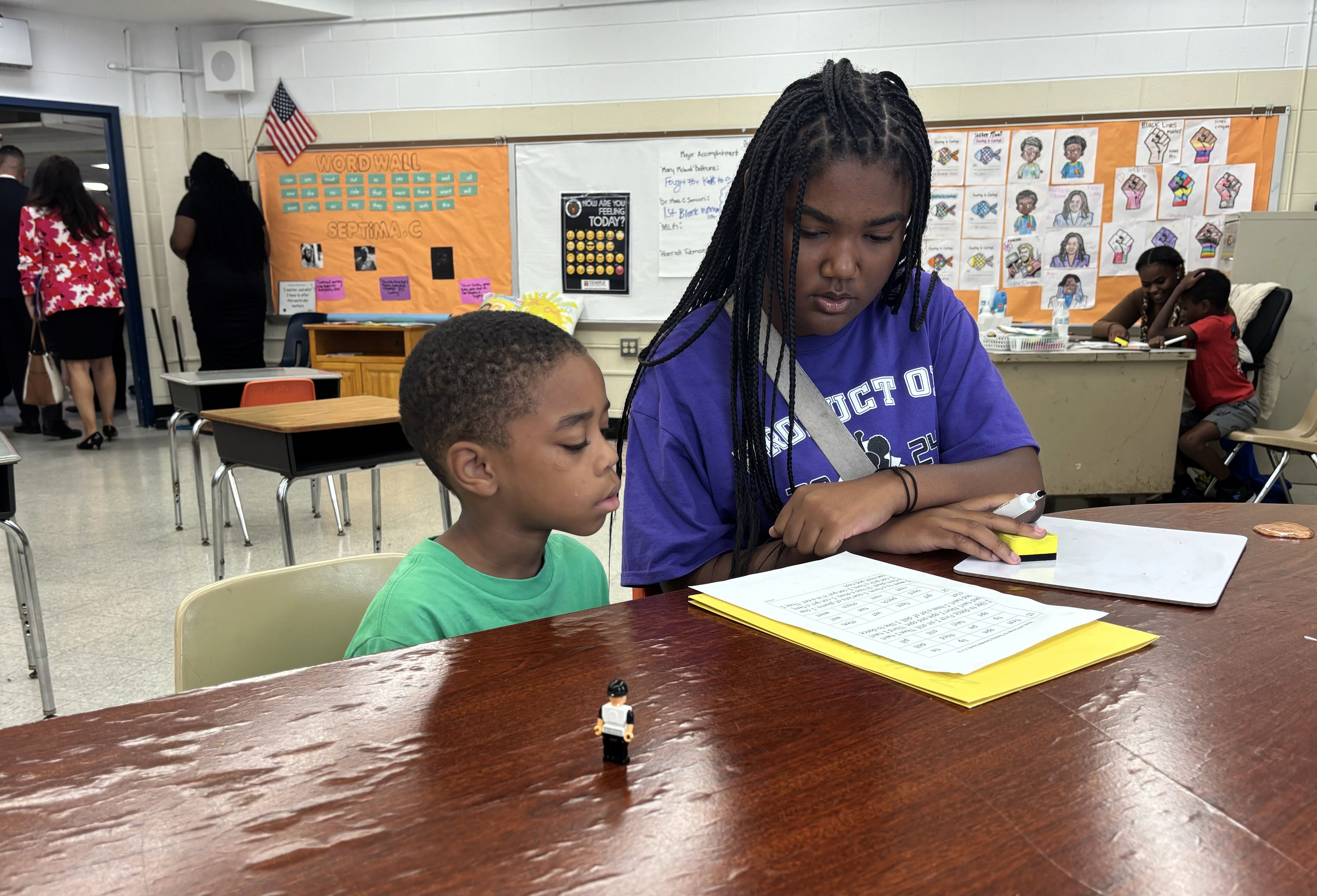
The City of New York: Yeshivas Fail to Meet Education Standards

The City of New York announced last weekend that 18 yeshivas that receive municipal funding do not provide basic education for their students.
Yeshivas Failing to Meet New York State Education Standards
Out of the 18, the municipality declared that four of them categorically do not meet New York state education standards.
Lack of Basic Education in Yeshivas
According to the municipality’s announcement, it is claimed that, for example, at the ‘Bnei Shimon Israel’ yeshiva in the Williamsburg neighborhood of Brooklyn, classes are held only in Yiddish, and there were no classes in the English language, reading, spelling, writing, mathematics, etc.
Efforts to Meet Education Standards
The local Ministry of Education stated in response that the Ministry’s personnel will work with the yeshivas that refuse to meet the municipality’s requirements in order to “formulate and implement a plan that will meet the state’s education standards.”
The Ministry of Education said in a statement that “most of the schools worked with the department, but some did not cooperate with the audit. Our goal is to educate children, not punish adults.”
Yeshiva Community’s Perspective
Yeshiva spokesman Richard Bamberger was quoted as saying that the Hasidic community “rejects the attempt to measure the effectiveness of its education by applying a biased set of technical requirements. Using a government checklist prepared and enforced by lawyers may help explain the state of public education. It is designed to blur rather than illuminate the beauty and success of yeshiva education.” The community claims that many NYC public school graduates do no know basic math and reading skills, while Judaic studies develop thinking skills and any comparison of economic success and contribution to society would put the yeshivas way ahead of graduates of the system.
Investigations and Funding Allegations
The New York Times reports that the investigations into Hassidic schools in New York have lasted through multiple mayors and have often been used for ‘political horse-trading’ among the city’s Jewish voter blocks. Previous investigations alleged that the schools diverted more than $1 billion USD from state or municipal funding to other pursuits.
SDGs, Targets, and Indicators
SDGs Addressed:
- SDG 4: Quality Education
- SDG 16: Peace, Justice, and Strong Institutions
Targets Identified:
- Target 4.1: By 2030, ensure that all girls and boys complete free, equitable, and quality primary and secondary education leading to relevant and effective learning outcomes.
- Target 4.7: By 2030, ensure that all learners acquire the knowledge and skills needed to promote sustainable development, including, among others, through education for sustainable development and sustainable lifestyles, human rights, gender equality, promotion of a culture of peace and non-violence, global citizenship, and appreciation of cultural diversity and of culture’s contribution to sustainable development.
- Target 16.6: Develop effective, accountable, and transparent institutions at all levels.
Indicators:
- Indicator 4.1.1: Proportion of children and young people (a) in grades 2/3; (b) at the end of primary; and (c) at the end of lower secondary achieving at least a minimum proficiency level in (i) reading and (ii) mathematics, by sex.
- Indicator 4.7.1: Extent to which (i) global citizenship education and (ii) education for sustainable development are mainstreamed in (a) national education policies; (b) curricula; (c) teacher education; and (d) student assessment.
- Indicator 16.6.1: Primary government expenditures as a proportion of original approved budget, by sector (or by budget codes or similar), including education.
Analysis:
The issues highlighted in the article are related to the quality of education provided by certain yeshivas in New York City. The article mentions that 18 yeshivas receiving municipal funding do not provide basic education for their students. This directly connects to SDG 4: Quality Education, which aims to ensure inclusive and equitable quality education and promote lifelong learning opportunities for all.
Based on the content of the article, the specific targets under SDG 4 that can be identified are:
- Target 4.1: By 2030, ensure that all girls and boys complete free, equitable, and quality primary and secondary education leading to relevant and effective learning outcomes.
- Target 4.7: By 2030, ensure that all learners acquire the knowledge and skills needed to promote sustainable development, including, among others, through education for sustainable development and sustainable lifestyles, human rights, gender equality, promotion of a culture of peace and non-violence, global citizenship, and appreciation of cultural diversity and of culture’s contribution to sustainable development.
The article mentions that some yeshivas do not meet New York state education standards, indicating a lack of quality education. This aligns with Target 4.1, which emphasizes the need for all students to achieve at least a minimum proficiency level in reading and mathematics.
The article also highlights the importance of promoting sustainable development and global citizenship through education. This relates to Target 4.7, which aims to ensure that learners acquire the knowledge and skills needed for sustainable development.
In terms of indicators mentioned or implied in the article, the following can be identified:
- Indicator 4.1.1: Proportion of children and young people achieving at least a minimum proficiency level in reading and mathematics.
- Indicator 4.7.1: Extent to which global citizenship education and education for sustainable development are mainstreamed in national education policies, curricula, teacher education, and student assessment.
The article does not explicitly mention Indicator 16.6.1, but it indirectly relates to the development of effective and transparent institutions at all levels, as the City of New York is taking action to address the issue of yeshivas not meeting education standards.
SDGs, Targets, and Indicators Table:
| SDGs | Targets | Indicators |
|---|---|---|
| SDG 4: Quality Education | Target 4.1: By 2030, ensure that all girls and boys complete free, equitable, and quality primary and secondary education leading to relevant and effective learning outcomes. | Indicator 4.1.1: Proportion of children and young people achieving at least a minimum proficiency level in reading and mathematics. |
| SDG 4: Quality Education | Target 4.7: By 2030, ensure that all learners acquire the knowledge and skills needed to promote sustainable development, including, among others, through education for sustainable development and sustainable lifestyles, human rights, gender equality, promotion of a culture of peace and non-violence, global citizenship, and appreciation of cultural diversity and of culture’s contribution to sustainable development. | Indicator 4.7.1: Extent to which global citizenship education and education for sustainable development are mainstreamed in national education policies, curricula, teacher education, and student assessment. |
| Target 16.6: Develop effective, accountable, and transparent institutions at all levels. | Indicator 16.6.1: Primary government expenditures as a proportion of original approved budget, by sector (including education). |
Behold! This splendid article springs forth from the wellspring of knowledge, shaped by a wondrous proprietary AI technology that delved into a vast ocean of data, illuminating the path towards the Sustainable Development Goals. Remember that all rights are reserved by SDG Investors LLC, empowering us to champion progress together.
Source: israelnationalnews.com

Join us, as fellow seekers of change, on a transformative journey at https://sdgtalks.ai/welcome, where you can become a member and actively contribute to shaping a brighter future.






